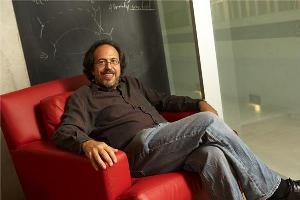Jan 7 2015
Perimeter Institute Faculty member Lee Smolin and the University of Edinburgh’s Marina Cortês have been awarded the $10,000 Buchalter Cosmology Prize for their groundbreaking work on the concepts of causality and time.
 Lee Smolin
Lee Smolin
The prize, which recognizes breakthrough research in cosmology, was announced at the 225th American Astronomical Society (AAS) meeting in Seattle, WA, on Jan. 6, 2015.
Cortês and Smolin’s paper, “The Universe as a Process of Unique Events,” published in Physical Review D, proposes a new framework for cosmology that they call “energetic causal sets.” The judging committee recognized the work as “a remarkable approach for introducing the irreversible flow of time into the foundations of physics.”
“It is very humbling and unexpected to receive the inaugural Buchalter Prize for this risky work, in which we set aside long-established frameworks to start afresh to formulate an approach to the deep problems that face cosmology from first principles,” said Smolin.
The award-winning research begins with the hypothesis that time is both fundamental and irreversible – a bold assertion, given that most physicists see time as a property that “emerges” as a consequence of more fundamental physical laws. Causality results directly from this irreversibility; the future is created continuously out of the present through the activity of time. Energy and momentum are likewise fundamental properties; spacetime, and particles moving within it, emerge through the activity of time, again, in diametric contrast to prevailing views. Every event has a unique “fingerprint” – the signature sum of the events that preceded it and no others.
The new framework holds key implications for fundamental physics – indeed, the authors argue that the primacy of time, and its irreversibility, must be incorporated into contemporary physics in order to make progress on key questions that beset the field. The authors believe that, ultimately, it may point the way to a unification of quantum mechanics with relativity – the “Holy Grail” of contemporary theoretical physics.
“This particular work is special, as it was challenging and uncompromising in setting a new direction,” Cortês said. “It took courage and determination to publish it, so to see it recognized is a reward beyond imagination.”
Perimeter Institute researchers Luis Lehner and Matthew Johnson (York University/Perimeter Institute) were among the third-prize recipients for their work in simulating cosmic bubble collisions.
More information about this award-winning research can be found at www.perimeterinstitute.ca.